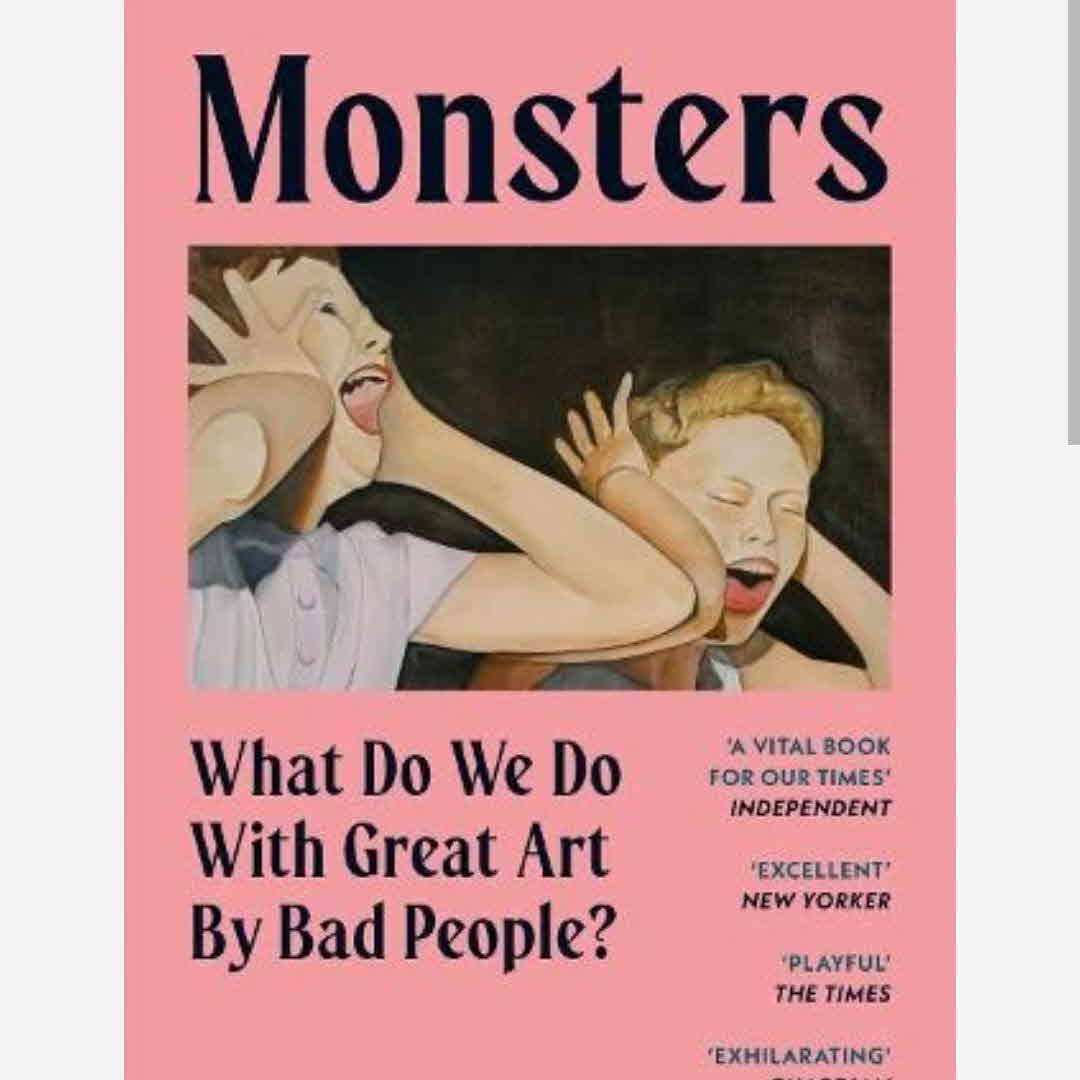
This book looks at famous people and discusses whether you can still appreciate their work even though they have done bad things in their lives.

This book looks at famous people and discusses whether you can still appreciate their work even though they have done bad things in their lives.
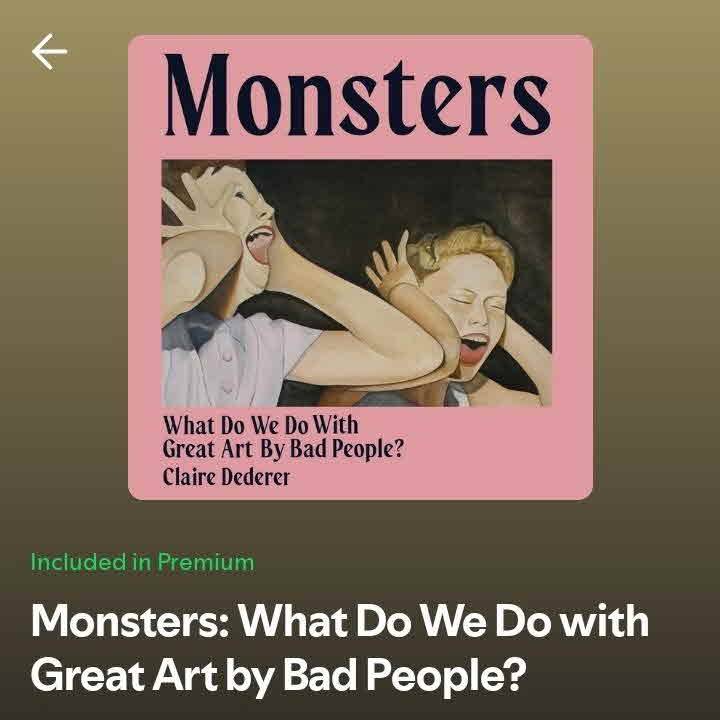
Something I sorely needed to read. It kind of lays out that yes, these people committed awful acts and yes, you can be hurt/upset/infuriated by that (I listened to the audio and went for long walks, which helped). A lot of reviews are salty and expect more from the text, but I think it's good that she sort of steps away from giving a definitive 'this is how to go about it' and instead talks of her own and others thoughts about the whole dilemma.
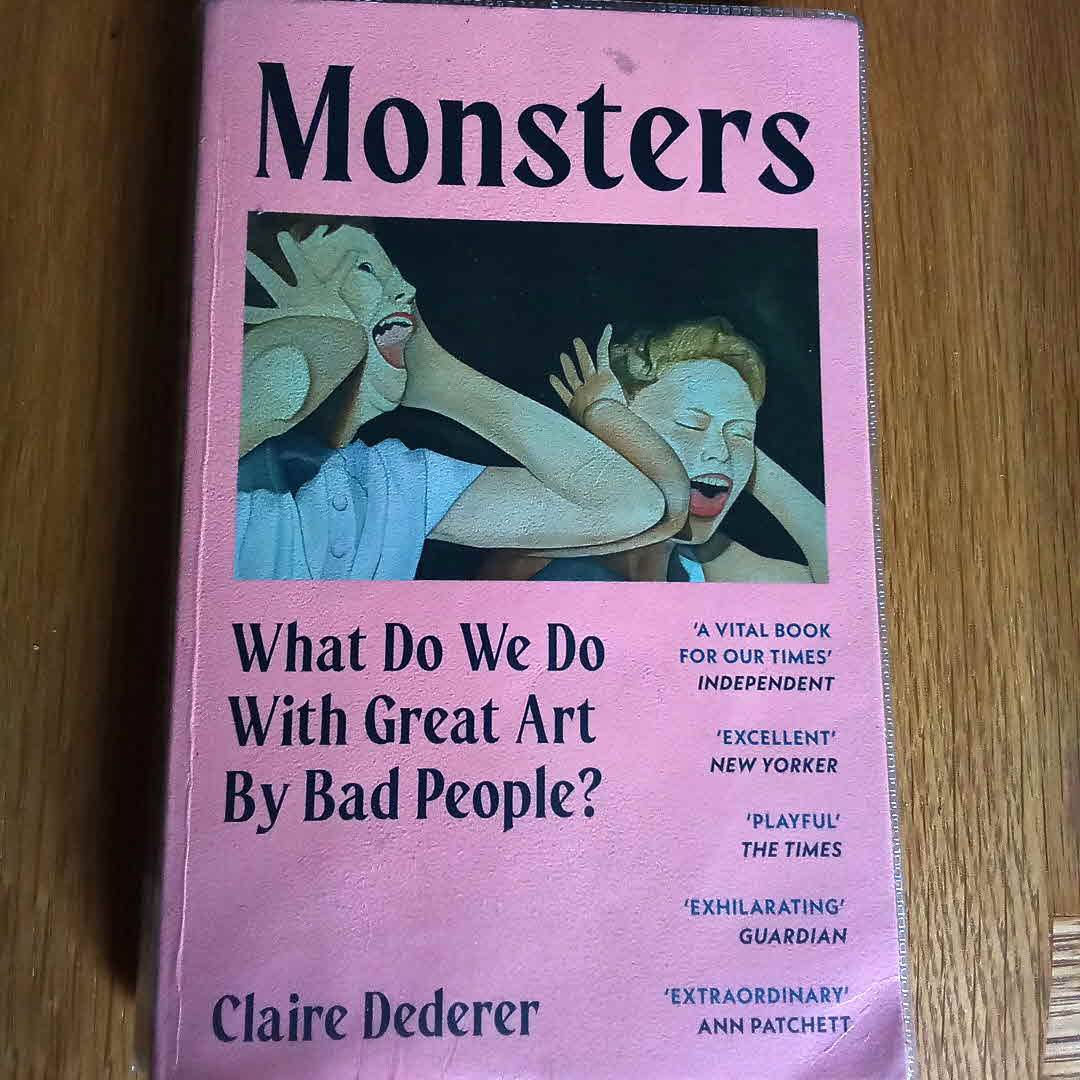
It's no spoiler to reveal that there's no handy graph with great art on the X axis and monstrosity on the Y axis. What it does have is an ample selection of ethical chew-toys. She discusses themes such as: who gets to be considered a genius? How do we ascribe monstrosity differently to male and female artists? Who the hell is included in "we" anyway? To what extent does "our" individual, subjective judgement have any meaning? I liked it a lot.
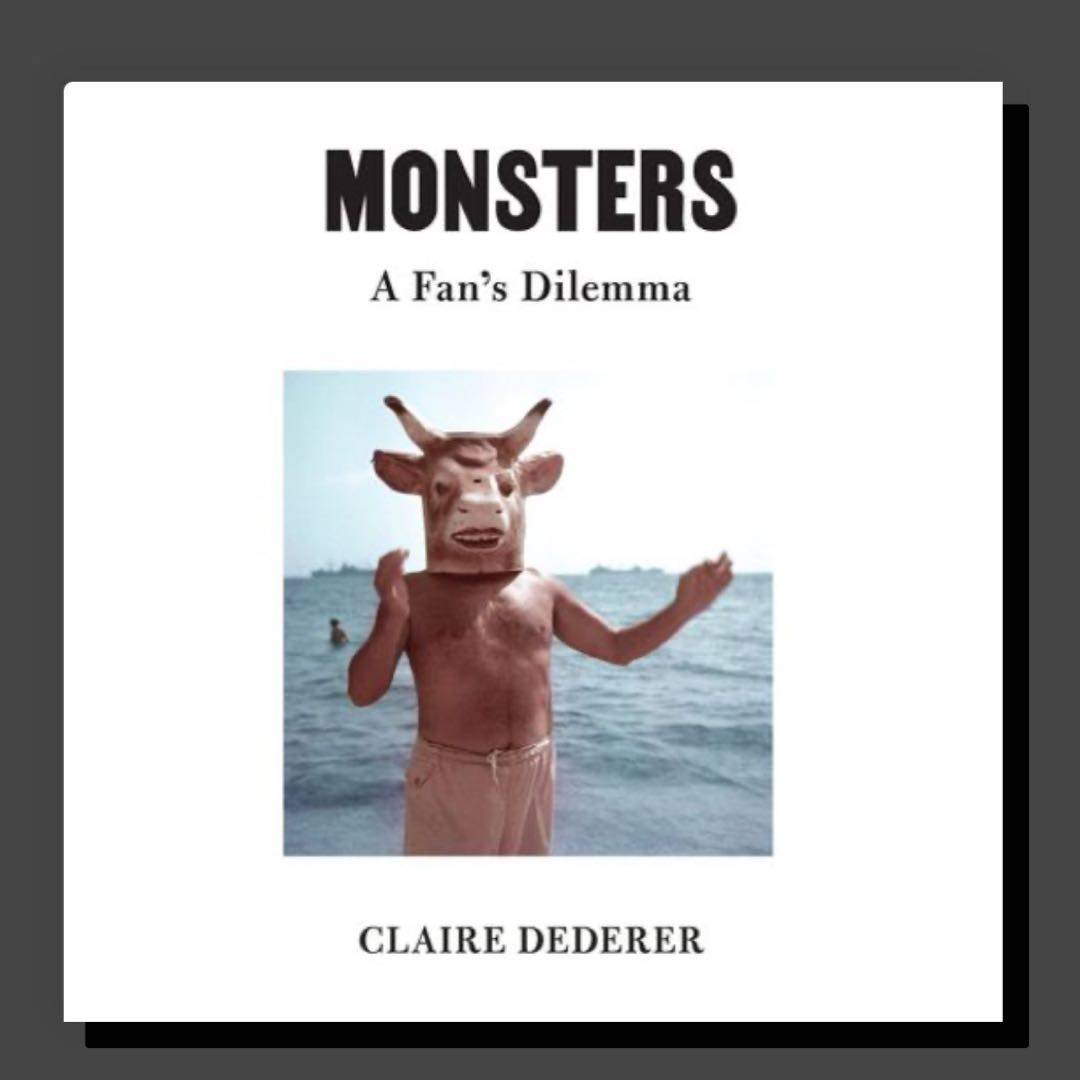
I put this on hold after looking at all the Gaiman on my shelves and thinking “here we go again.”There is much to discuss regarding the art vs the artist but this was not what I was looking for. I found the equivalencies of monsters troubling. Women wanting space from childcare to work given the same consideration as Polanski? To me, it had less real reflection on the potential responsibilities of consumers and more tangents and biographies.
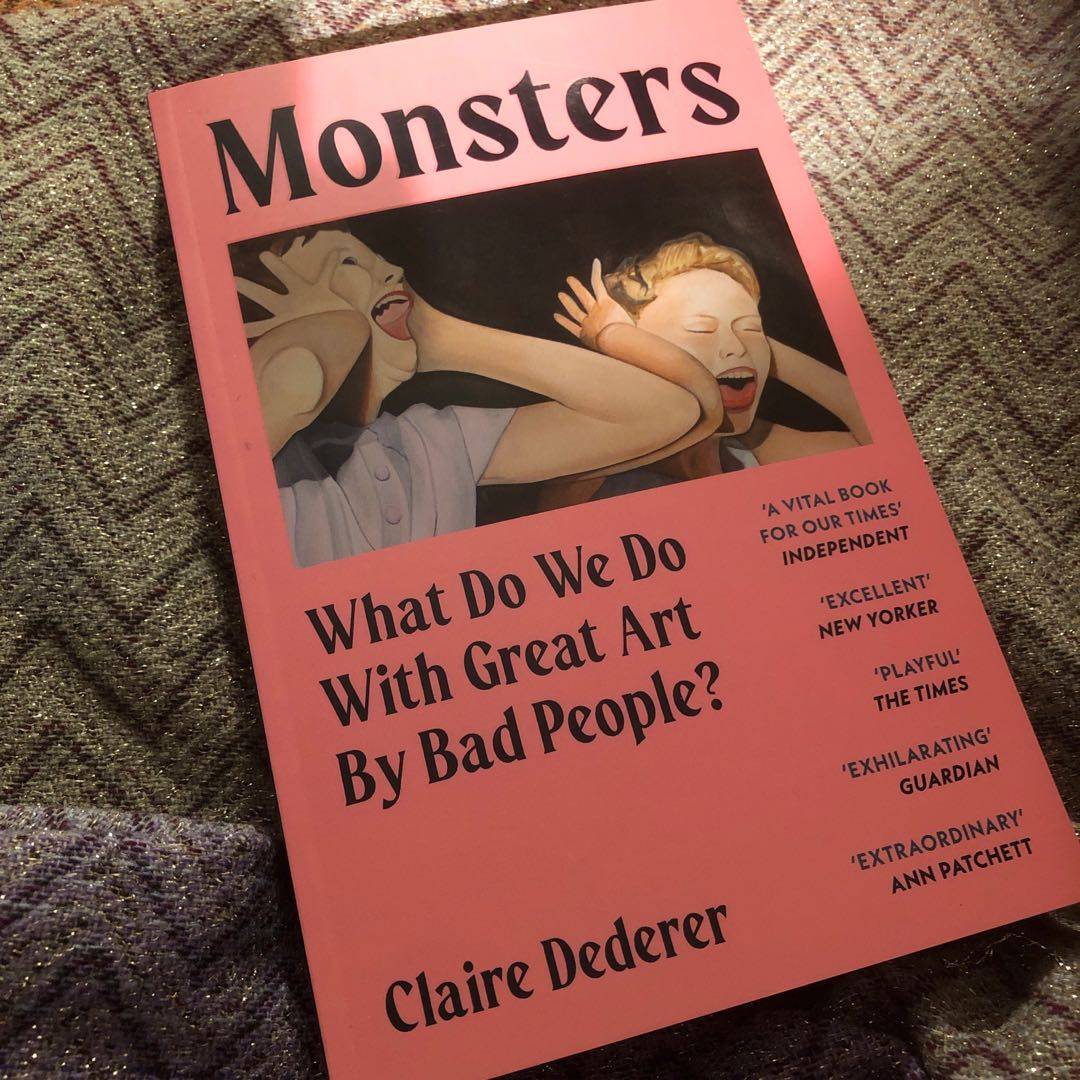
Can you love art by a person who has done despicable things? This is what Dederer is looking into focusing on among others the movies by Polanski and Woody Alan, the novels by Hemingway and the art by Picasso. This also leads to a discussion on the genius. Who is defined as a genius? And what comes first the genius or the great art? And also looking into the biggest sin a female artist can make, abandoning her children even if male artists to it
Why does all this matter? Because genius informs our idea of who gets to do what. Who gets to have license. Who gets to give in to their impulses. Whom we choose to aid and abet when they do indulge in those impulses. When genius is tied to masculinity - a masculinity that continually reasserts itself - then someone is being left out.
All of which is to say, the genius is not you. Not me. The genius, as we understand it, is not the person who
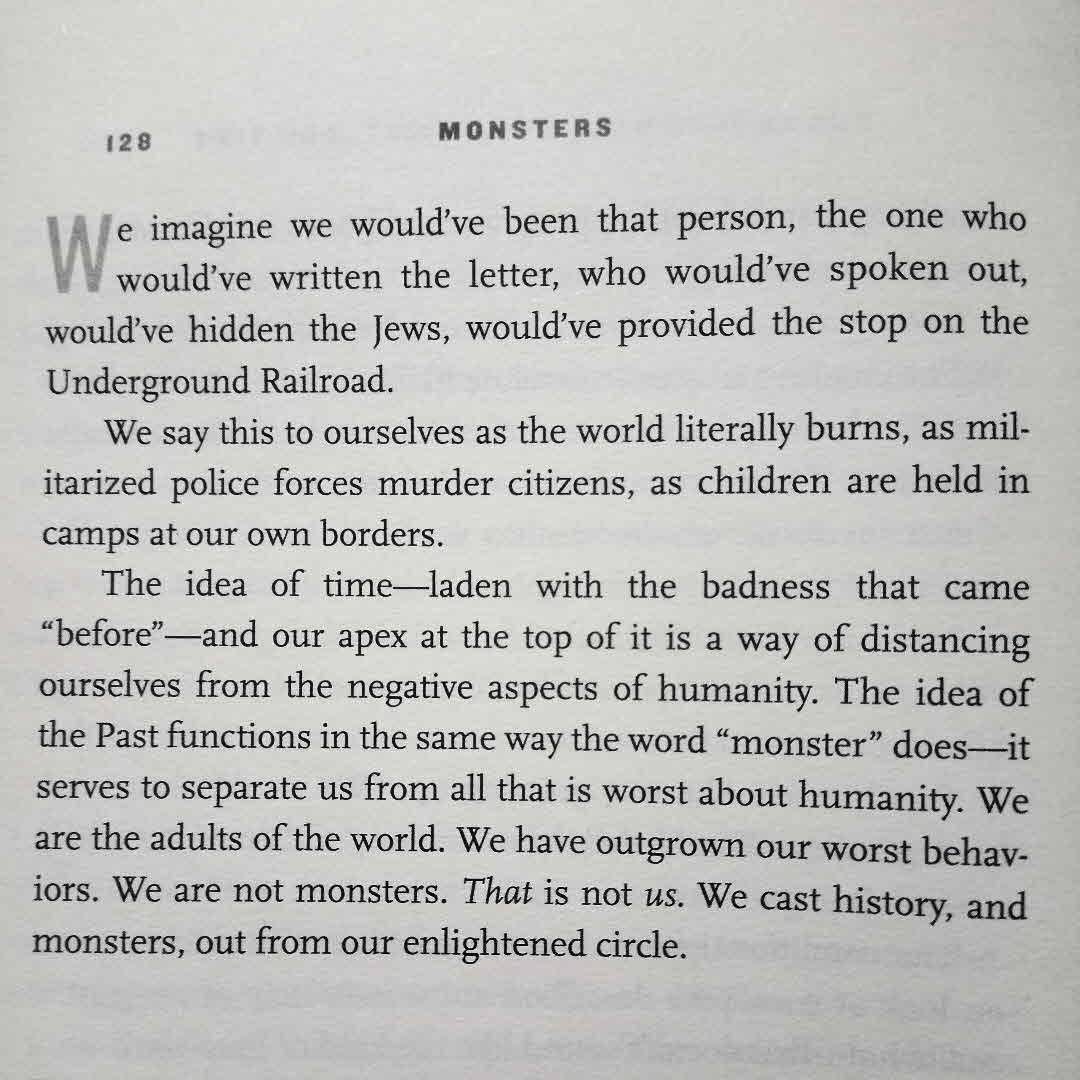
'We imagine we would've been that person, the one who would've written the letter, who would've spoken out, would've hidden the Jews, would've provided the stop on the Underground Railroad.
We say this to ourselves as the world literally burns, as militarized police forces murder citizens, as children are held in camps at our own borders.'
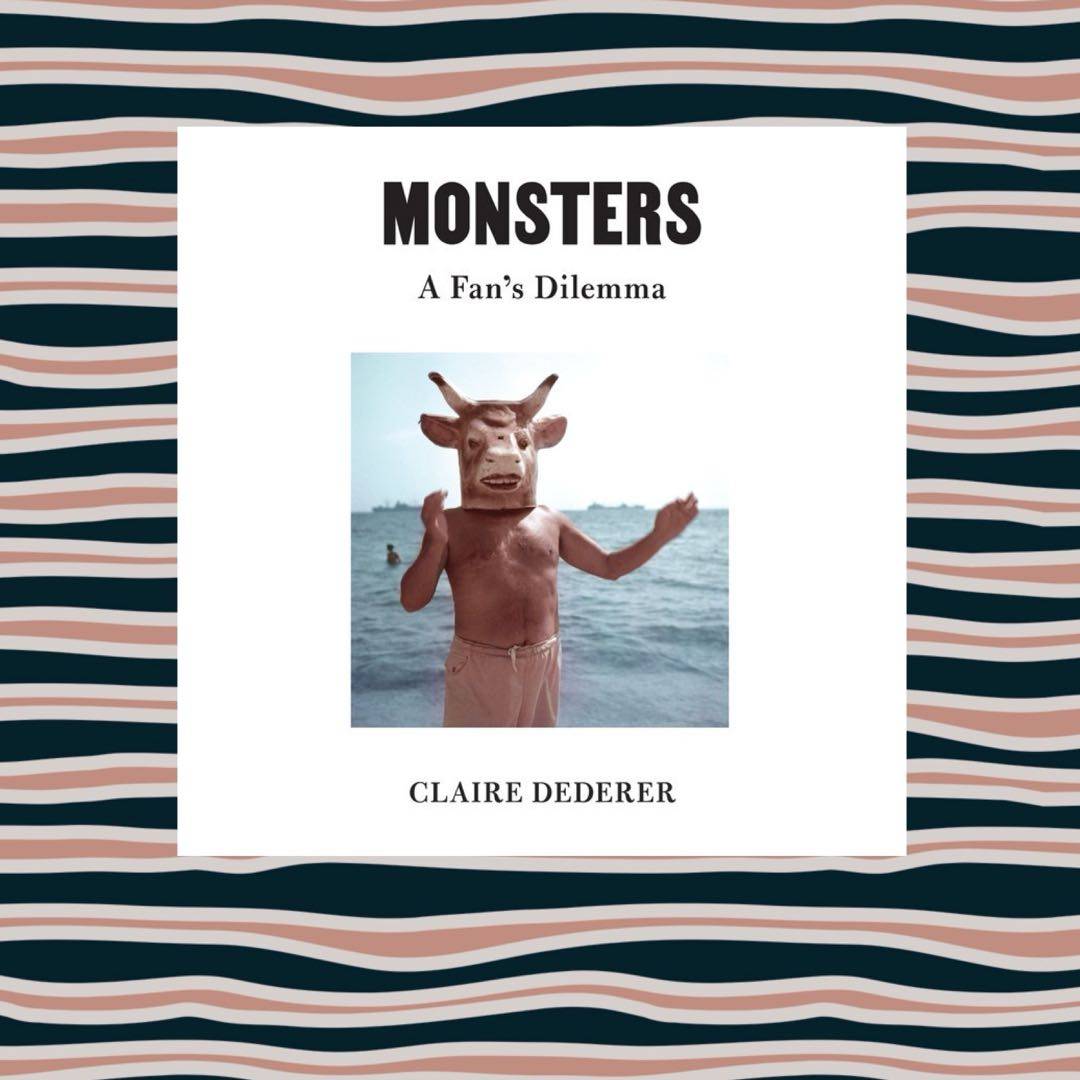
A book of our times, for sure! What makes a monster? Must we cancel not only the bad men who create art but also their music/movies/paintings/books? What about Michael Jackson? Who can stomach Woody Allen films these days? Are we monsters too, if we admit to enjoying their content? Dederer poses these questions but doesn‘t give definitive answers in most cases. Thought provoking. I really enjoyed this!

I enjoyed this book. Part of my “problem“ or “blessing“ is that I am usually unaware of the artist's misdeeds. I stay blissfully unaware of pop culture, or news. I hear inklings of horrific events but then I don't delve into them enough for the news to stick. Also, it might be d/t my extensive head injury past and difficulty with retaining certain information.
Overall it made me think.

I picked up this book as a way of exploring my conflicted feelings about Vin Diesel given the accusation that has come to light. It gave me a lot of food for thought.

From my tbr. Discusses a topic I think about. Where are your thoughts when a talented artist/writer acts badly?
#Monster. #CoverLove
@Eggs
@Alwaysbeenaloverofbooks

I've taken my time with this one. Thoughtful look at (as the UK subtitle says) "what do we do with great art by bad people". But more than this: questions why "bad" women and "bad" men artists are working to different criteria. Questions the role of redemption / forgiveness. Relates it all to Capitalism and consumerism - and still manages to end with hope (and Miles Davis).
Recommended.
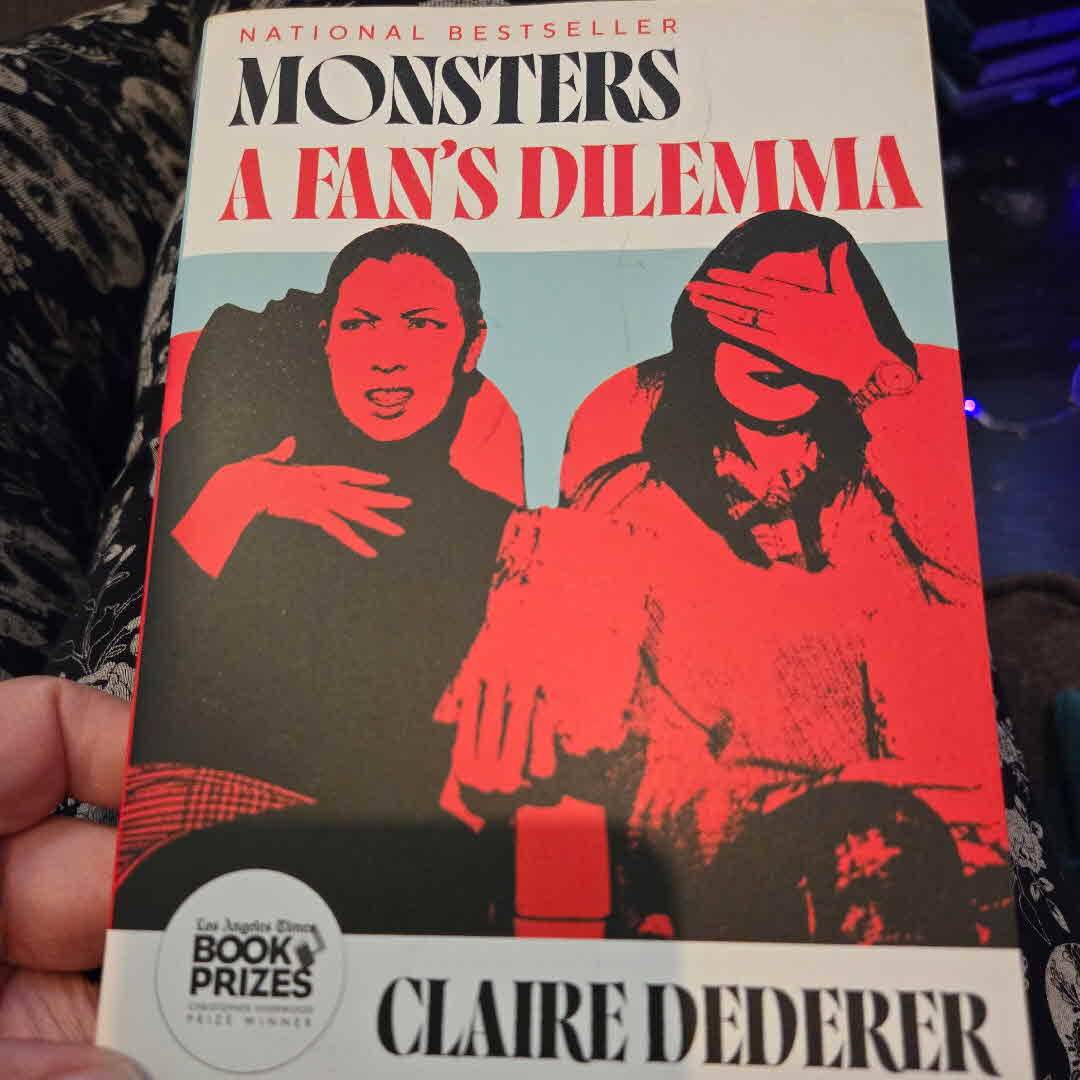
Pulling this from the TBR after the Neil Gaiman news this week.

I absolutely loved this. Dederer set out to write an ambitious book & she achieved her goal. Not only that, but she came off as being the kind of “cool” that I‘ll only ever aspire to be. Her musical references range from Joni Mitchell to PWR BTTM with all the (plumbed) levels of complexity that implies. Ironically & infuriatingly, the effect is that I now want to watch/read/listen to all of the media she questions the morality of consuming. 👇🏻
In A Pillow Book....the poet Suzanne Buffam defines another kind of silence: the hush of motherhood: "A Great Book can be read again and again, inexhaustibly, with great benefit to great minds, wrote Mortimer Adler, co-founder of the Great Books Foundation. Among the five hundred and eleven Great Books on Adler's list, updated in 1990 to appease his quibbling critics, moreover, only four, I can't help counting, were written by women..."

Fascinated by the discussions here.
The illusion that things that have taken place in "the Past" are separate from us, that things are getting "better".

Confession: I still have one chapter left to read but Monsters was far & away my favorite read in June.
Also…this was really hard! I reserve the right to change my mind and reconfigure the grid. For now, though, it stands! 🐢📔
#ReadingBracket2024
#2024ReadingBracket
@CSeydel

Do I have other responsibilities I should be worrying about right now? Yes.
Is it the perfect day for reading outside? Also yes.

“Everyone who was a girl…knows this feeling: running your hand along the spines of biographies in the school library, looking for any title at all about a woman & winding up reading about…Clara Barton? Fine, okay. Clara Barton. If that‘s all there is.”
OMG! 😂
Clara Barton‘s hometown was right next to mine. My first library job was in Oxford, MA. So, even though I grew up two decades after Dederer, you better believe I know this feeling!

Ugh, this is so depressing," said one. "What a disgusting creep," said the other. "Can't we leave?" And we went out for ice cream, blinking as we stepped from the cavernous dim of the museum lobby into the bright thin northern sunlight.
-
Tempting to think the teenagers have a point! (On a Picasso exhibit about his relationship with women)

Biography used to be something you sought out, yearned for, actively pursued. Now it falls on your head all day long.

I mentioned this difficulty on social media, this problem of watching Manhattan in the Trump moment...
"Manhattan is a work of genius! I am done with you, Claire!" responded a writer (older, white, male) I didn't know personally. This was a person who had remained silent in the face of many of my more outrageous social media pronouncements some of which involved my desire to chop up the male half of the species...
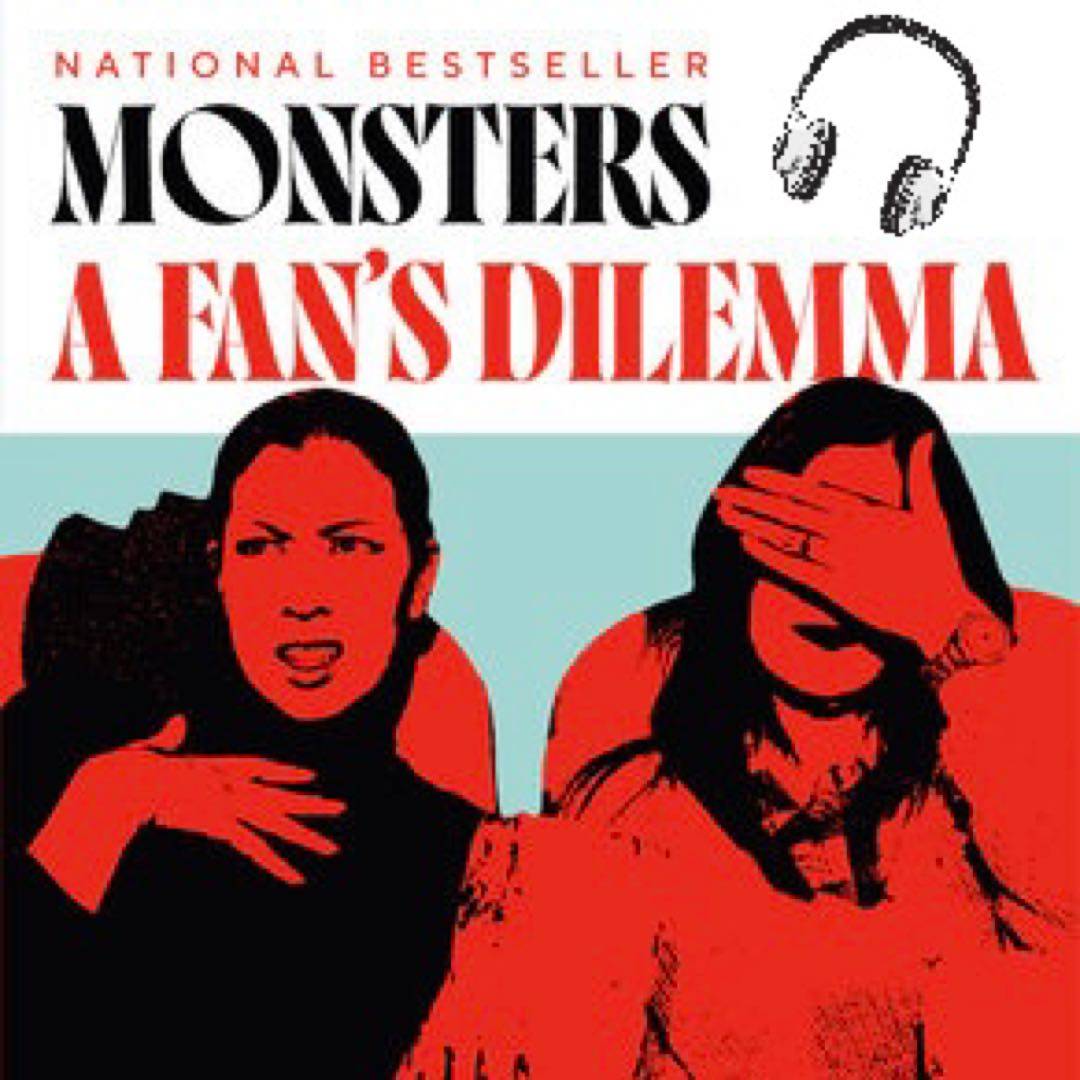
A meditation on how the personal lives of artists impact our view of them as fans. Once we know horrible things about a person (Picasso, Cosby, etc.), how can we still enjoy their art? The author questioning both herself and others in the way to process the hardest contradictions. It‘s complicated and doesn‘t shy away from the conflicting things we feel. I was fascinated and left thinking about the debate for days.
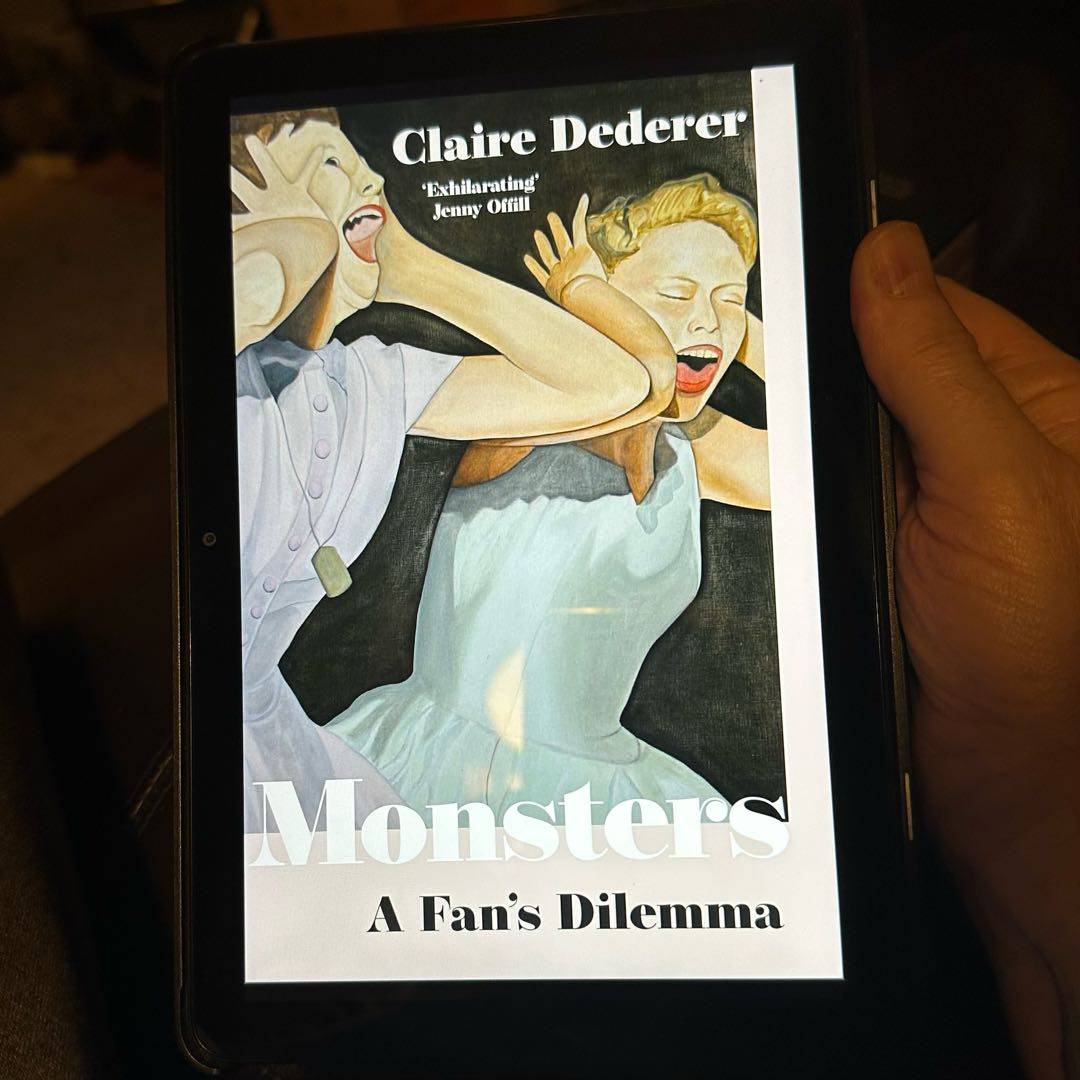
Picked this up on a whim thinking it was going to be a salacious, who‘s who of cancelled celebrity wrong-uns and their crimes. It‘s better than that. It‘s about fandom & the sticky problem “separating the art from the artist”. We see how artists/men behaving badly are given a bye due to their “genius”, while female counterparts are labeled “monsters” for different reason. It‘s all done through a post-modern, Marxist-feminist lens. A great critique

For about 60% of this book I was engrossed and having lots of conversations with myself about the contents. Then it sort of lost its way for me. There are lots of good discussion points, though no answers. We will all have our personal perspectives on many of these things. But a woman being mentally ill and killing herself (child abandonment) and a man drugging and raping a 13yr old are not comparable. I‘ll let you guess who.

⭐️⭐️💫 I finished this and I have thoughts… mainly I think she lost her thread or needed to better define “monster”. The book starts with her conflicted feelings of what to do with the art of child rapists but then moves to a version of “we‘re all monsters” by which she means women artists want space from their children to create? It felt like a false equivalence of monstrosity=any imperfections. If everyone is a monster then no one is. 👇

@fredthemoose called it right ,it can be tedious because she analyzes it from all angles.Still, I can come away that I do still respect the art of some people I don‘t respect as human beings.Will I support them with my dollars anymore, probably not.That doesn‘t make me or them better people though. I thought about Alice Neel ,I love her paintings, her life was more difficult for her kids & herself, there‘s even a doc about that.Kids get their say.

I really wanted and expected to like this, but I‘m close to halfway through and am just finding it so… tedious…
😒

What to do with the art of monstrous men?
This hooked me. It‘s a book I knew I was reading too fast but I also didn‘t want to put it down. Love her voice, her slippery writing. It‘s smart and thought provoking but also beautiful and personal.
This question comes up so many times with my friends I kind of want to have this book on hand to give out.
Oh, maybe that‘s what I‘ll do for Christmas. 🎄

Can you love the art of an artist who is or was a monster? It‘s a question I think most of us ask ourselves and others.
Personally I love the Harry Potter books, even though I feel morally conflicted by Rowling‘s politics. And Michael Jackson‘s music will always live in my head.
This explores that huge question and different ways of looking at the answers and why our emotions vary on the topic. Very well thought out!

My eclipse shot and book review all in one ?
"Monsters" grapples with the question of what to do with about the artwork of monstrous men (and a couple of women).
My example is Woody Allen. "Midnight in Paris" is one of my all-time favorite movies. I have a friend who won't even consider ever watching a Woody Allen film - no matter what.
Should we consume and support the work put out by immoral, wicked monsters?
This was thought-provoking.
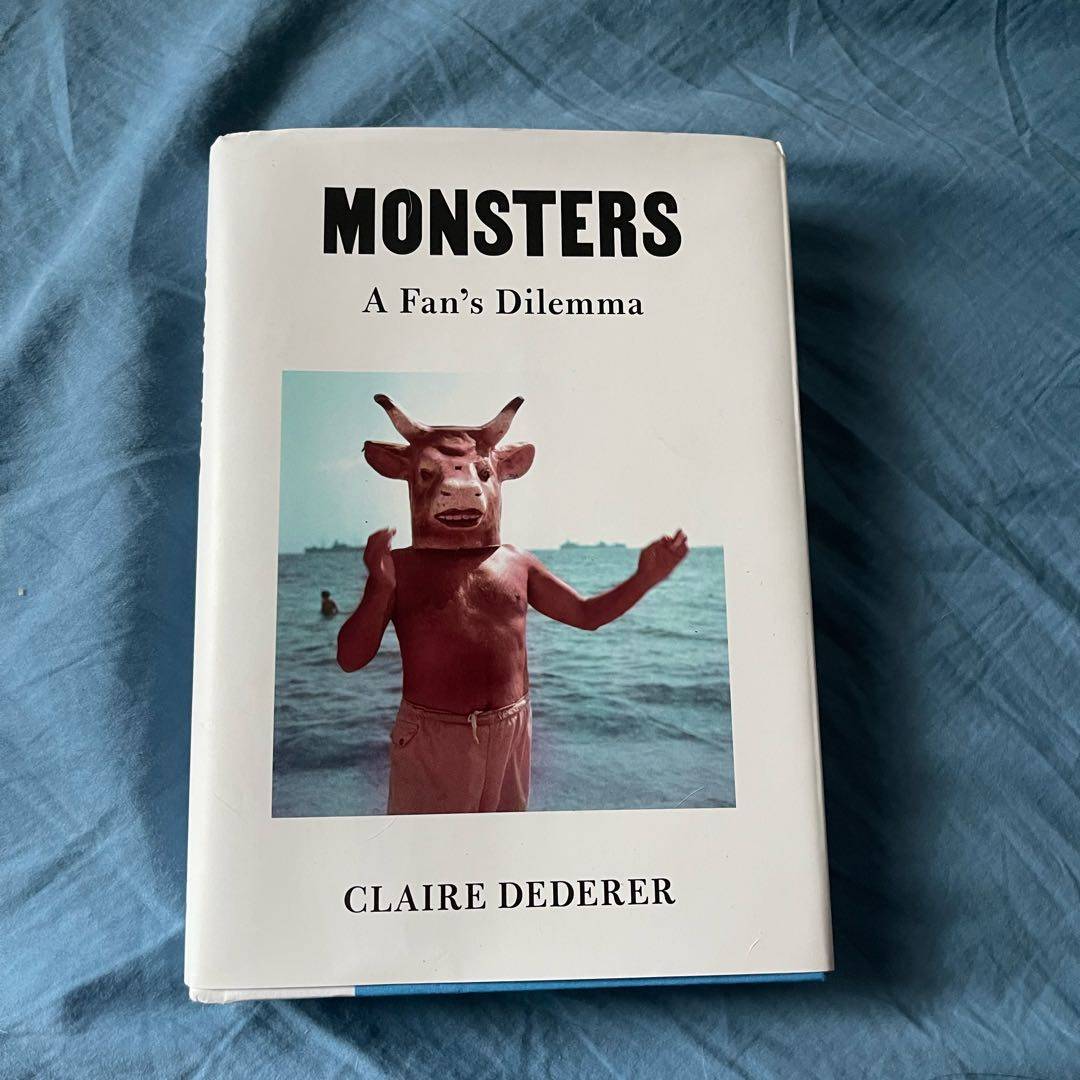
I have spent many hours contemplating the authors subject of this book. What do you do with the artist who is brilliant and who makes meaningful art to you but they have done awful, monstrous things? We have so many examples of this- some cases hard, some much easier. I don‘t agree with some points but she is thorough, persuasive and these chapters seem important and current. I will be thinking about this one for a while!

Good night. You all want to read this book. It‘s so smart and thought-provoking, and sometimes very funny.

This book is so smart and fascinating and honest and vulnerable and my younger self is desperately jealous that it isn‘t a book I wrote. My actual self is grateful to have read it.
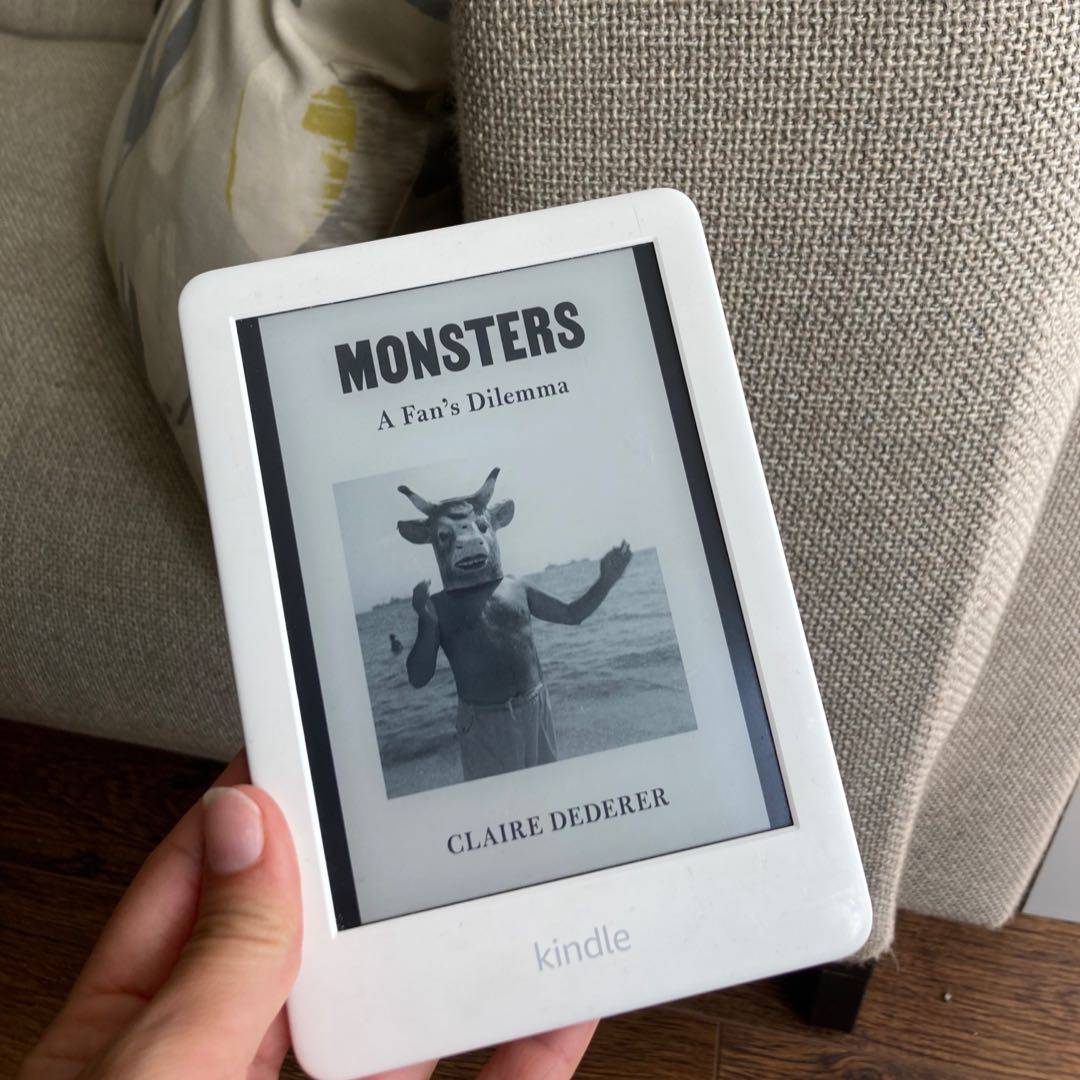
I don‘t know if I wanted the author to give me answers (like she herself wants at the start of the book) but I found this unsatisfying. It looks at all sorts of ways that artists are monsters as are we the audience. But in the end it feels a little like she equates child rape to mild neglect as being equally bad…
I wish it had explored the idea more - what our options/approaches might be.

This is part memoir and part essays of if we can still love the art of horrible people. I loved so much of this book. I found the essays to be thought provoking and vulnerable, when I really expected a scandalous read of the horrible crimes of famous artists…which it wasn‘t. It‘s a mental exercise of how/if one is allowed to enjoy what monsters make.

Dederer looks at her dilemma as a fan when monstrous allegations come out about an actor, director, or artist. Do you throw out the art with the artist? Is it okay to stream a Roman Polanski movie if you don‘t pay for it? There are no easy or glib answers here. It was really interesting to read this last week while I slowly watched a docuseries about Playboy, which also went into the complex stories of victims. Thought-provoking for sure!

Absolutely loved this examination of reconciling the art and the artist, something I think about a lot. Superbly written and observed. I loved the veering into memoir. Dederer is also a great audiobook narrator, which isn‘t always the case when the author reads their own book.

Great topic, and Dederer is a wonderful writer (and a likable audio narrator). But I‘m going to have to sit with her ideas for a while. Some I don‘t know that I agree with from an ethical perspective (and feel a bit like rationalizations). Others feel spot-on, sometimes uncomfortably so. Certainly a thought-provoking read that has me considering my own choices and judgments re: “problematic faves.”

Thought provoking. Claire discusses how we deal with monstrous mean and how we deal with their work. Fantastic read.

Recent Reads June 21 - #LGBTQ #CanadianAuthors #comics #booktube
https://youtu.be/ePQHM8j1QVQ

How do we reconcile our love for a work of art with the monstrous person who made it? Polanski, Allen, Picasso, Hemingway, Davis—artists hailed as geniuses but with biographies blemished by despicable acts. Should the art be revered or discarded? Claire Dederer asks these questions, among others, in an attempt to decode her own misgivings about the art she loves.
This is a fantastic book, succinctly written, and one I will definitely read again.
